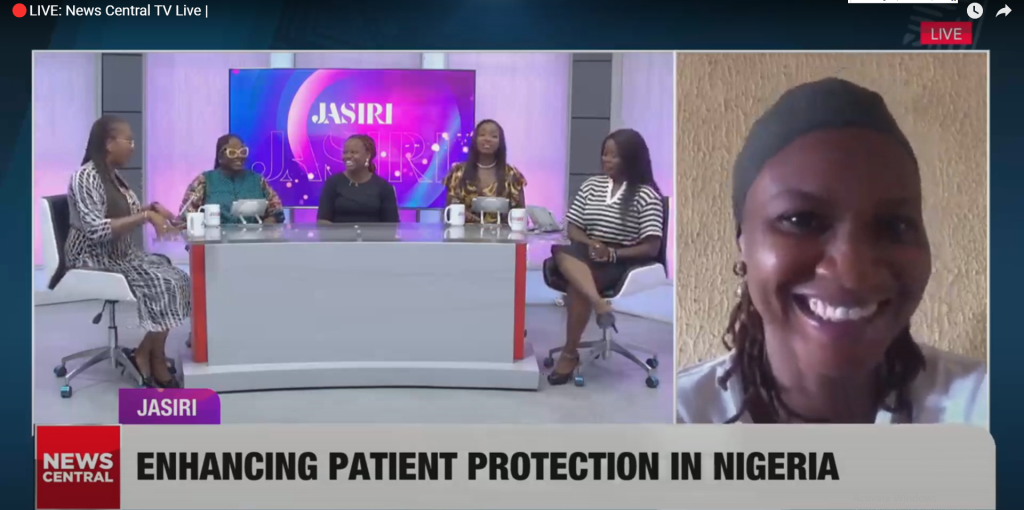Dr. Odunola Olabintan, Founder of The Health City, has raised concerns about the lack of trust many Nigerians have in the country’s healthcare system.
During her appearance on News Central TV’s Jasiri on Tuesday where she discussed “Promoting Patient Safety Standards in Nigeria,” Dr. Olabintan pointed out that patients often avoid hospitals, preferring to stay at home when ill due to the perceived lack of care from health professionals such as doctors and nurses.
She explained that one major issue is the overworking of medical staff, which negatively affects their interactions with patients. She suggested that addressing the issue of overburdened staff is key to improving the attitude of healthcare workers and enhancing patient care.
“Patients in Nigeria often lack trust in the healthcare system due to inadequate care from practitioners, such as doctors and nurses. Consequently, many prefer to stay home when ill rather than seek hospital treatment.
“The fact is that staff are frequently overworked. Once this issue is resolved in the healthcare sector, we can begin to improve the attitudes of doctors towards patients in hospitals,’ she said.
Misdiagnosis and Patient Rights
On the subject of medical misdiagnosis, Dr. Olabintan emphasised that patients have avenues to report wrong diagnoses, but many are unaware of their rights or do not pursue complaints due to the stress involved. She noted that underreporting is common, as some cases are simply ignored or mishandled.
She encouraged patients to become more aware of their rights and hold healthcare providers accountable when mistakes occur. Reporting incidents of misdiagnosis is essential to ensure accountability and improve patient safety in hospitals, she added.

Trauma After Wrong Diagnosis
Nigerian choreographer and actor, Deborah Aiyegbeni, shared her personal experience with misdiagnosis, describing how traumatising it was. She explained that many patients in Nigerian hospitals feel powerless, unsure of how to challenge healthcare professionals who sometimes seem indifferent.
“When you’re misdiagnosed, you’re often left confused and unsure of how to handle the situation. It’s difficult to question doctors and nurses who act as though they’re doing you a favour,” Aiyegbeni said.
“I took time to observe the situation and sought to understand whether the misdiagnosis was due to incompetence or other factors,” she added.
Raising Awareness of Patient Rights
Dr. Olabintan also highlighted the importance of patient rights in Nigeria, referencing the Patient’s Rights Bill, which outlines the rights and responsibilities of both patients and healthcare providers. However, she pointed out that many patients are unaware of these rights.
She called for hospitals to display the laws clearly in their environments, so patients are informed about their rights, which include access to healthcare, confidentiality, informed consent, and the right to ask questions when they need clarification.
“It is the responsibility of healthcare professionals to respect and fulfill the rights outlined in the Patient’s Rights Bill,” Dr. Olabintan said. She stressed that it is also the duty of healthcare providers to make patients aware of their rights.
Dr. Olabintan pointed out that improving patient safety in Nigeria requires not only better healthcare practices but also greater awareness and enforcement of patient rights.
Watch the complete interview below.


